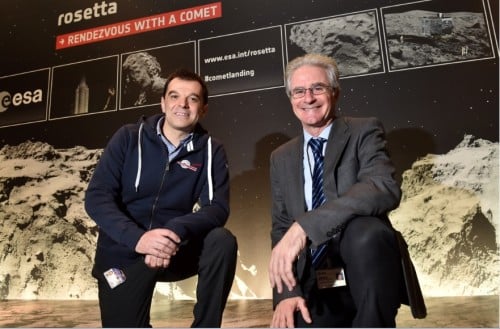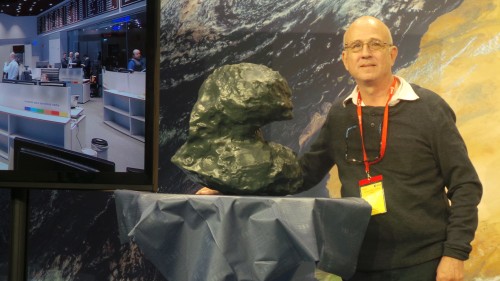During the evening (Tuesday, 11.11.14) the control engineers of the European Space Agency approved continuing preparations for the launch of the Philae lander from Rosetta at nine in the morning and its landing on comet 67P Churyumov-Garsimenko in the afternoon


Last night, Tuesday, at eight o'clock in the evening Central European Time, the European Space Agency announced at an event held at the European Space Agency's control center in Darmstadt, Germany, that the first decision on the route intended to finally confirm the landing of the Philae spacecraft on Comet 67P Churyumov-Garsimenko. Two more decision nodes are expected tonight at one o'clock and at two and a half past midnight European time (02:00, 03:30 Israel time), and finally the final approval will be given around nine in the morning. Paolo Per, director of the European Space Agency's control center, told the journalists who came to the landing events at the European Space Agency's control center in Darmstadt, Germany, that the first test was to make sure that the spacecraft were on the right track and at the right speed, so that God forbid a situation would happen where Philae would leave but miss the the comet The night's tests will include a review of the Philae systems and the separation system from Rosetta. At seven in the morning, the final approval is expected to be given, and if all four tests pass safely, the order will be given to detach Philae on a detour route that will bring it within seven hours to the ground of the comet nucleus for the first time in history. Meanwhile, Rosetta is expected to raise its orbit so that it can stay longer above the landing point and serve as a relay station. If the approval is not given, the next opportunity will be in two weeks when Rosetta will again be at the same point above the comet as today (it takes Rosetta two weeks to orbit the comet). Several speakers summed up the year 2014 in the life of Rosetta, which at the beginning woke up from a three-year coma, and then made maneuvers to approach the comet and enter orbit around it in early June. In July and August, it got close enough to locate in its photographs several potential sites for landing, until finally a point was chosen on the 'Duck's Head' - the smaller part of the nucleus.
"Imagine that a year ago we didn't even know what the comet looked like, and we had to work on a tight schedule. Similar operations, for example landing a spacecraft on Mars, were planned many years in advance, which added to the complexity of the mission. Add to that the twenty-minute time gap between the transmission from the spacecraft and its reception on Earth (the comet and Rosetta are 500 million kilometers from Earth, beyond the orbit of Mars), which gives engineers very little window to correct navigation errors, if any."
We will continue and report from the field during the day. The landing itself will be controlled from a control center of the German space agency DLR in Cologne, which is responsible for the construction and operation of Philae, and another control center in Toulouse.
see also:
